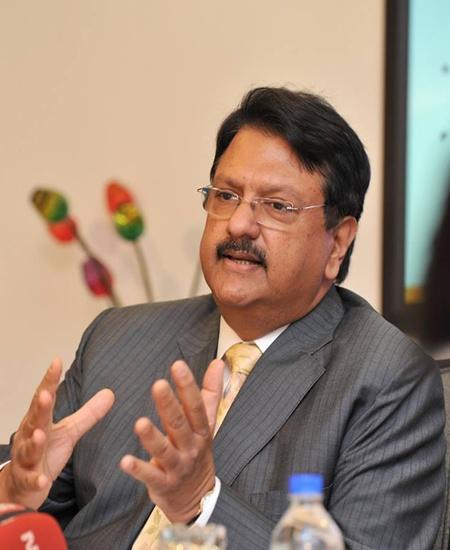
Hailing Narendra Modi’s victory, India Inc hopes the incoming government would boost economic growth and create jobs.
Here’s what corporate heads expect from the Modi government:
Reverse Land Acquisition Act to boost infra: Ajay Piramal, Chairman, Piramal Group
After a long election process, the world's largest democracy is about to get a new government. The question on everyone's minds is, "How can the new government put the economy back on track?"
We must act immediately to restart industries like mining and infrastructure, and liberalise FDI norms in sectors such as retail, which are long overdue.
The central government must become a facilitator and a regulator, allowing individual states the choice to participate in FDI. Banks have to be recapitalised so that they can lend effectively and this must be done right away.
Another immediate step would be to boost manufacturing and infrastructure development by reversing the land acquisition law passed last year.
In the medium term, we should look at the subsidy regime. Job creation and growth are crucial for sustainable development, and education and skill development are the inputs for job growth.
In education, the RTE Act must be amended to enable private players to invest in primary and secondary schools. I am especially concerned about the role of the state in health care. It is essential to move to a system where there is universal access to affordable healthcare.
In the long term, by which I mean five years or thereabouts, the key is infrastructure development. Reviving infrastructure projects by streamlining approval and decision-making processes will be critical.
By 2019, the structural growth rate of India should be at 8% or higher. Last the new government must restore the federal structure of India, as too much power is concentrated at the Centre.
…
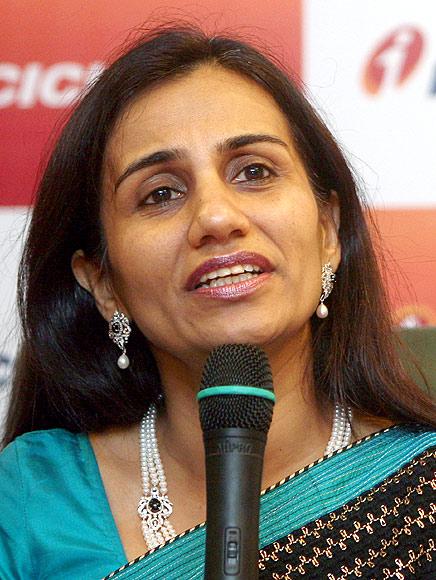
Govt must clear private sector's receivables fast: Chanda Kochhar, MD & CEO, ICICI Bank
A long period of uncertainty has ended with the decisive mandate to the National Democratic Alliance.
This election was focused on governance and growth, and the new government must take quick and effective action to address the challenges that the economy is facing: stalling of investment activity, low business confidence and high inflation.
I see five immediate priorities for the new government:
Resolving issues in projects that are already underway, through a project-by-project focus on pending last mile approvals and access to fuel/ raw material. Joint and coordinated action is required between various central ministries as well as concerned state governments, with single point coordination at the central level.
Clearing pending receivables from government agencies to the private sector, through focused and time-bound decision-making in the bureaucracy.
Resolving the retrospective taxation issue and bringing clarity around tax laws, which would be major confidence-building measure for global investors and encourage further investment in India.
Taking up implementation of the Goods & Services Tax, given its potential to boost economic activity.
Taking steps to bring inflation under control to give monetary policy the room to support growth. While sustainable supply-side measures may take time, in the short-term this could be attempted through better management of agricultural output and efficient movement of output to markets to eliminate avoidable supply shortages.
…
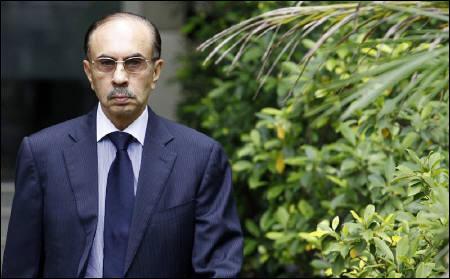
Improving the ease of doing business in India: Adi Godrej, Chairman, Godrej Group
That the new government will be led by a combination in which one party has a majority in Parliament is an excellent development for India. This will enable bold and quick decisions.
We need to ensure we record gross domestic product (GDP) growth of at least eight per cent next financial year. To achieve that, the key priorities will be:
Improving the ease of doing business in India. This was never very good, but deteriorated further during the last three years.
Solving tax disputes with foreign and Indian investors, as a result of the retrospective amendments and transfer pricing interpretations.
Providing fiscal stimuli to improve industrial growth. Also, the minimum alternate tax needs to be reduced, as various fiscal incentives provided do not accrue to the companies that made large investments due to the minimum alternate tax.
Introducing the Goods and Services Tax at an early date because that could add two percentage points to India's GDP growth, other things being equal.
…
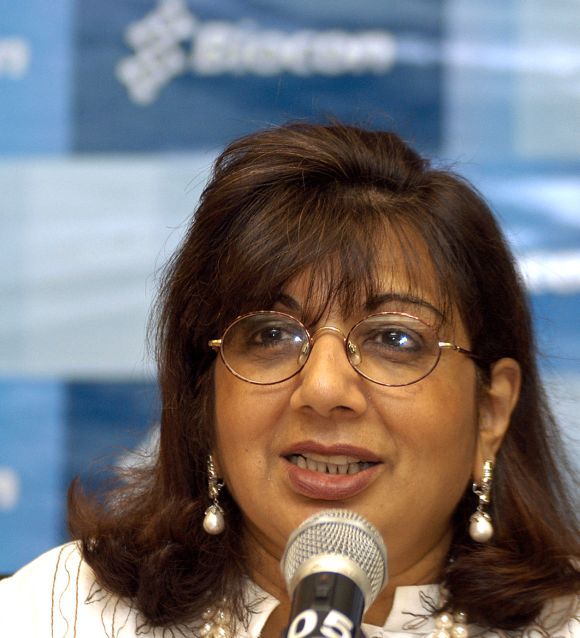
An agenda for economic revival: Kiran Mazumdar-Shaw, CMD, Biocon
The decisive mandate handed to the Narendra Modi-led Bharatiya Janata Party reflects India's overwhelming desire for a strong leadership.
Expectations are high from the new government, which will have to deliver on its promise of a better life for every Indian.
The only way it can do so is by reviving the economy and putting India on a path of sustainable and equitable growth.
The economy has stalled because of a sharp decline in investments. Policy uncertainty and pending regulatory clearances have put $100 billion worth of projects in jeopardy. Swift action is needed from the new government.
To begin with, the government will have to focus on regulatory reforms that will improve the ease of doing business, reduce transaction costs and expedite approval timelines.
There is an urgent need for a system of "deemed approvals" and "automatic approvals". To attract foreign direct investment, the government will have to ensure fast-track project clearance and articulate unambiguous tax and compliance regulations.
Information technology needs to be leveraged optimally to make administrative governance in India transparent and stakeholders accountable. The government will also need to tackle India's energy and water crises.
The new government needs to exhibit strong political will to implement bold economic reforms, create world-class infrastructure, usher in overdue tax, labour, land and regulatory reforms, address the power deficit and roll back unfriendly business regulations.
The new government has been provided a historic opportunity; it cannot afford to belie the hopes of a billion Indians.
…
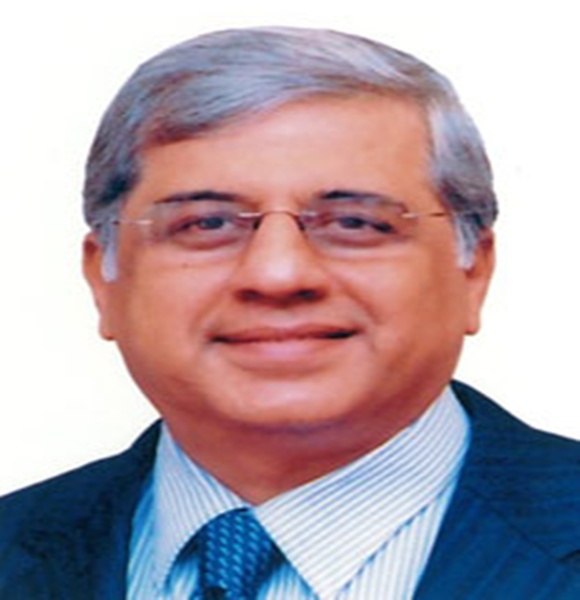
Invest $1 trillion in infra to revive steel demand: Firdose Vandrevala, Executive Vice Chairman, Essar Steel
Large investments have been made in the Indian steel sector to make it the world's fourth largest steel producer. The sector employs over 2 million people and contributes 2 per cent ($20 billion) to India's GDP.
The potential for further development is huge, as per capita steel consumption in India is low. Steel demand tends to grow faster than the GDP, if growth is over 6 per cent. But steel demand grows at a slower pace if GDP grows slower than 6 per cent.
With India's GDP growth weakening in FY14, steel demand has grown by 1.8 per cent. The vision of producing 300 million tonnes of steel per annum by 2025-26, as envisaged in the "The National Steel Policy 2012," may become a pipe dream unless immediate corrective steps are taken by the industry and policymakers.
Structural changes need to be initiated to address issues pertaining to finance, raw material and demand. We believe the government must use most of the $1 trillion allocation for infrastructure development under the 12th Five Year Plan.
This would have a cascading effect on the core sector. Secondly, it is imperative to bring about transparency in pricing and allocation of natural resources.
Since the sector is capital intensive, there is a need to have a separate Steel Finance Corporation to fund investments. The government will also need to ensure a single-window clearance for for greenfield and brownfield projects.
Finally, the need of the hour is to formulate a national mining and ore policy. The government must ensure that domestic demand of iron ore takes precedence over export.
…

Auto sector needs excise duty sop: Pawan Munjal, MD & CEO, Hero MotoCorp
India has set an example for the rest of the world today - hundreds of millions of voters exercising their democratic right to elect a government in a seamless and peaceful transition.
Now it's up to the new government to further "reinvigorate" this country decisively and quickly.
The government has to send out a clear signal to investors in terms of consistency & transparency in policy making, no flip-flop on this.
To begin with, it has to give top priority to education and healthcare, and revive investments in order to generate jobs. There should also be a "zero tolerance" policy on corruption.
The manufacturing sector is grappling with roadblocks, especially in the area of labour reforms and land acquisition.
On each of these areas, the government will need to act assertively and quickly. The government also has to boost the auto sector's contribution to 10 per cent of GDP by 2016 (currently 6-7 per cent) with innovative reforms.
Controlling inflation should be another priority as it directly impacts consumer spend. The farm sector's productivity has been screaming for attention and more funds need to be allocated. The government should also focus on boosting auto sector's contriution to GDP. The 8 per cent excise duty on two-wheelers should be retained.
This is also the time to bet on fiscal federalism by putting more money in the hands of states. However, there is no magic wand, so we need to give the new government time to show results, but it has to set the tone and get into action-mode straight away.
…

Resolve last-mile issues to put projects on track: Gunit Chadha, Co-CEO, Asia-Pacific, Deutsche Bank AG
The foremost task of the new government would be to re-ignite the shaken confidence of Corporate India. This is best restored by definitive action - de-bottlenecking the stuck brownfield projects.
It's often about the last mile, where decisions need to be made by the government and the bureaucracy in unison. Such decisions can prevent the snow-balling of restructured loans.
If Indians do not demonstrate confidence on India, MNCs are highly unlikely to. Growth is the best tonic for jobs, so it's imperative that India puts new capex to work.
Reducing regulatory uncertainty, ensuring speedy time-lines and simplifying procedures should, therefore, be the biggest priority.
New capacities in infrastructure and manufacturing will, over-time, help to reduce inflation. We are fortunate to have a RBI governor who has high respect and confidence of the market participants.
While there remains the dilemma between managing inflation and propelling growth, the best way to achieving both outcomes is getting the supply engines firing once again. Monetary policy can only help so far.
The Budget should aim to reflect a fiscal policy, which is pro-growth, non-inflationary and committed to reducing fiscal deficit. Difficult measures like accelerating the direct and indirect tax reforms must be taken.
Confidence is contagious! The recent upsurge in Indian equity markets is equally telling of global liquidity smelling growth. India must create an environment where MNCs feel welcome. There are enough MNCs who continue to have strong strategic faith in India. The choice is India's.
…
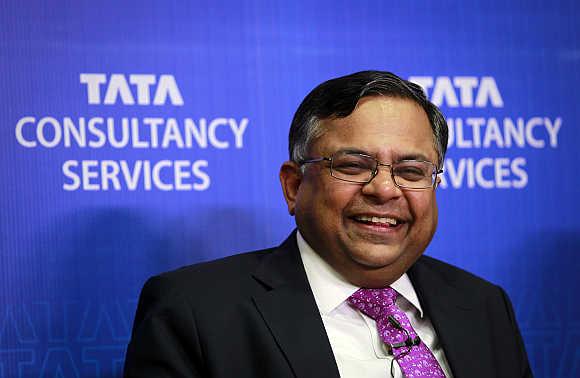
New govt must embrace tech to serve citizens: N Chandrasekaran, CEO & MD, Tata Consultancy Services
A strong and stable government at the Centre will help drive the next generation of reforms, speed up policy making thereby boosting prospects for economic growth.
Upgrading the country's infrastructure through investment will help boost growth rates as well as give a fillip to many industries including the IT industry, which can tap the talent available in Tier II and Tier III cities and create sustainable jobs.
India needs $1 trillion for investment in infrastructure during the 12th Five Year Plan, with 40% of the funds slated to come from the private sector. The new government is in a great position to bring long-term private investment into sectors like roads, ports and power.
The government should embrace digital technologies to connect with and serve citizens in a holistic manner. For a large country like India, digital governance is the only way to fundamentally simplify its interactions with citizens at key service touch points.
India's entrepreneurship spirit also needs to be further fuelled, backed by investment and innovation so that we can meet the economic aspirations of society.
The productivity of a nation depends on a skilled workforce and India has the world's youngest workforce with a median age of 25 years, way below that of China and OECD countries.
There is, therefore, a huge opportunity to create a workforce that will go a long way towards making a better future. If these priorities are tackled through policy and execution, the country can return to a higher, sustainable economic growth path.
…

Use political capital for big ticket reforms: Gautam Chhaochharia, Head of Research India, UBS
A changed political economy implies that the new government will very likely continue course correction, focus on economic recovery and fight sticky inflation. These are not just economic imperatives but also political.
What should the government do to achieve these objectives, especially given growth-inflation dynamic is a big challenge?
The ingredients critical for any sustained investment cycle recovery are 1) fiscal consolidation 2) policy stability 3) administrative support 4) sentiment 5) corporate profitability.
The government needs to continue or even accelerate some of the recent measures like regular diesel price hikes and project approvals. Setting up independent regulators for various sectors and ensuring their independence should also be considered.
Inflation has been sticky but thankfully, there appears to be a more serious acknowledgment of this as the core issue among policymakers recently.
The new government too should continue efforts towards containing inflation, through fiscal consolidation, as seen by the previous government over the last few quarters, and also through muted MSP increases and use of food stock to meet any shortfall.
If, and it's a big if, the government is able to use its political capital to initiate reforms in factor markets (land, labour) then that would be a bonus. These are not going to be easy.
Even the last attempted reform in land acquisition by the outgoing government has faced criticism from industry as it has increased costs. We remain constructive on markets, driven by a cyclical economic recovery, albeit a mild one.